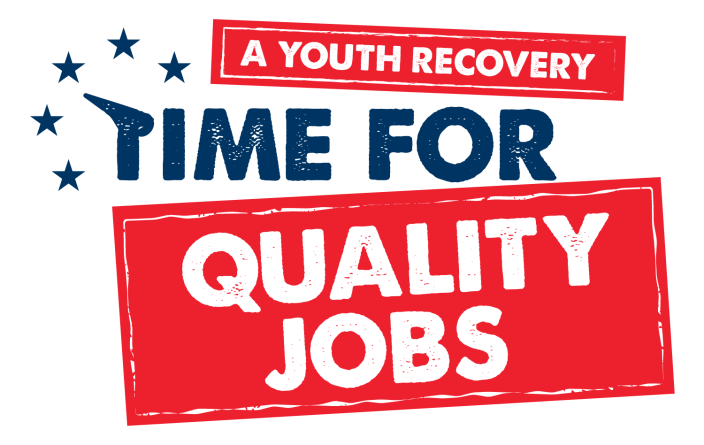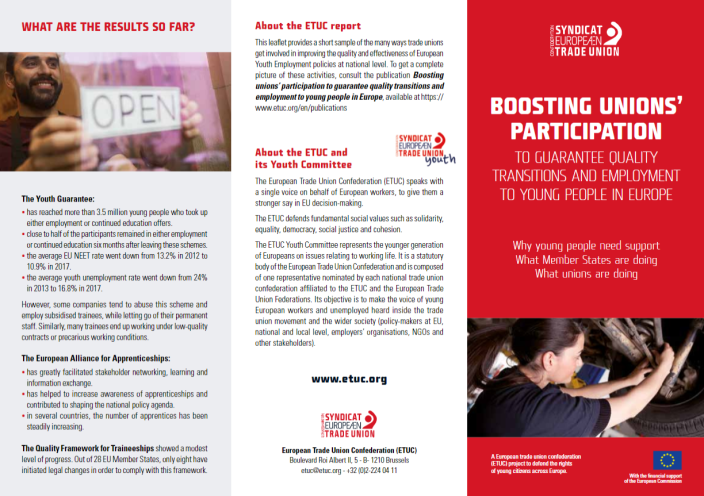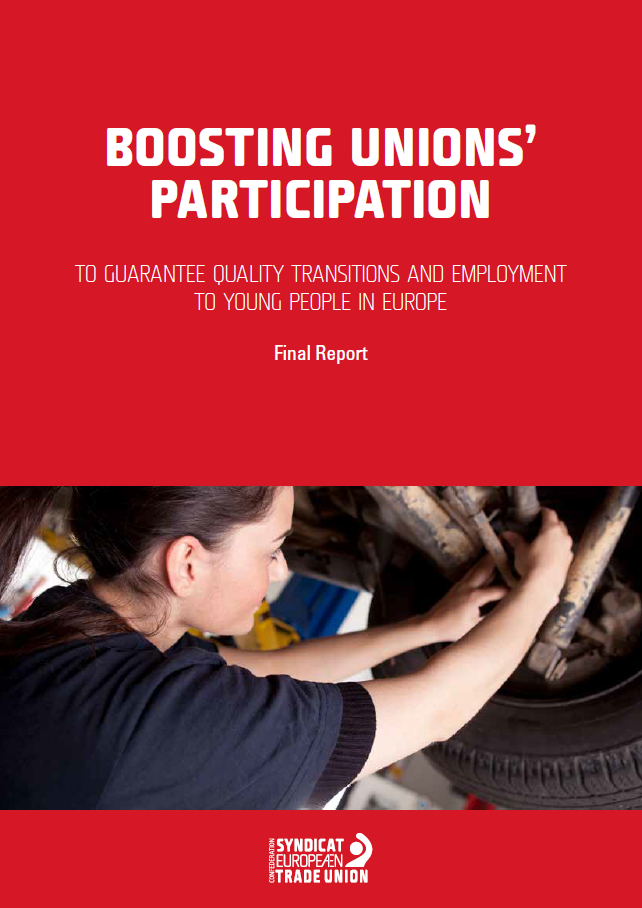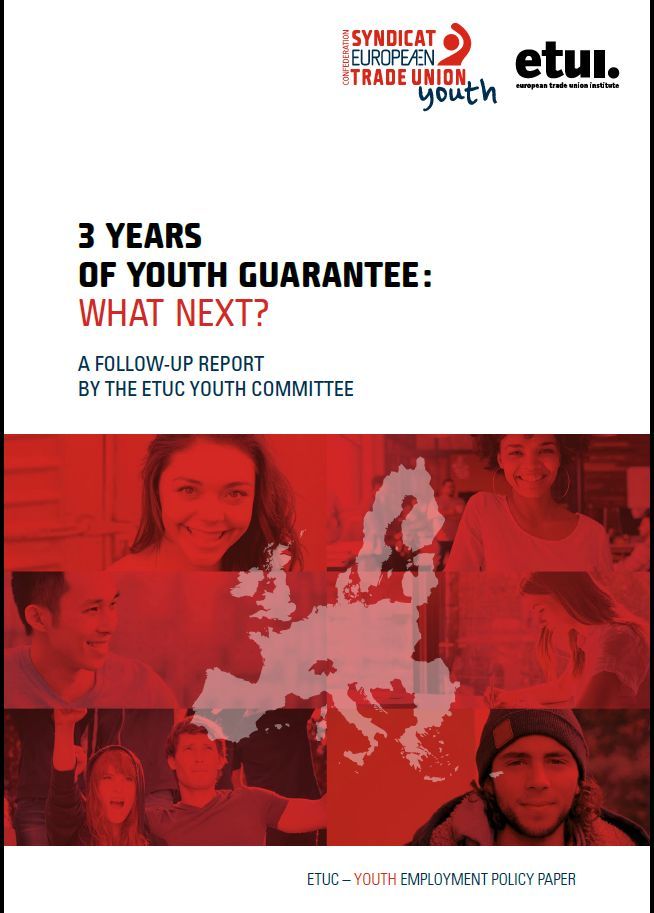The ETUC regrets that the potential of the Youth Guarantee as the main policy tool to fight rising youth unemployment has not been fully realised. The ETUC calls on the Member States to step up their efforts to implement the reinforced Youth Guarantee, including quality training that promotes integration into the labour market, and calls on the European Commission to provide an overview of the steps taken to implement the Council Recommendations on the Reinforced Youth Guarantee at the national level and to ensure effective synergies with the NRRPs.
Youth Guarantee, the only policy that tried to tackle youth employment in a lot of Member States, has not succeeded to limit the development of precarious work during the last decade. It has been used by some Member States to hide unemployment figures, by offering low-quality traineeship. The rise of precariousness among young people is facilitated by the absence of social protection for many of them. Without any income, young people accept any offer of temporary or precarious employment and obtain a permanent contract at an older age than the previous generations.
The Youth Guarantee, newly financed by the ESF+, with an obligation to spend a minimum of 12% of the funds in the Member States with a higher NEET rate than the EU average, remains the main tool for combatting youth unemployment in the EU. The Council Recommendation on how to strengthen the programme, adopted in October 2020, includes a list of measures on how to ensure the quality of what is offered under the programme, how to improve outreach and how to strengthen the monitoring of the outcome for better evaluation of the programme.
















